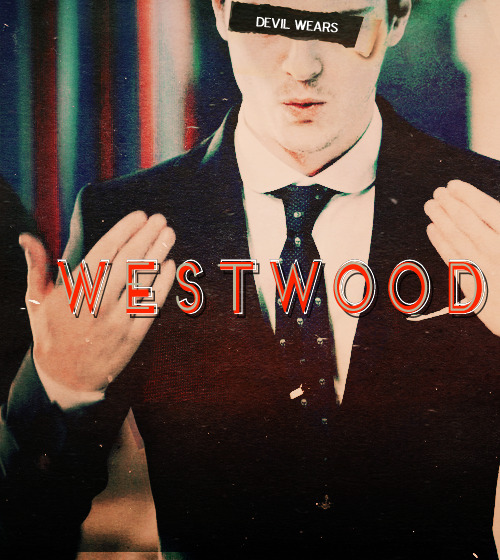
BBC Sherlock Fan Forum - Serving Sherlockians since February 2012.
- Davina
- Moderator
 Offline
Offline 
- From: The Only Way is Essex UK
- Registered: February 9, 2012
- Posts: 9,714
Re: Moriarty; an in-depth analysis.
'He laughed at me'. This says it all.
![]()
---------------------------------------------------------------------------------------------------------------------------------------------
Don't make people into heroes John. Heroes don't exist and if they did I wouldn't be one of them.

- Sherlock Holmes
- Administrator
 Offline
Offline 
- From: 221B Baker Street
- Registered: February 7, 2012
- Posts: 5,162
Re: Moriarty; an in-depth analysis.
Davina wrote:
'He laughed at me'. This says it all.
Awww. Poor Jim.
Actually, he's kind of the classic case of someone who was bullied then ending up the bully, so yeah, pretty typical.
I like the idea of him pulling the legs off frogs and stuff, ![]()
---------------------------------------------------------------------------------------------------------------------------------------------
Eventually everyone will support Johnlock.
Independent OSAJ Affiliate

- Davina
- Moderator
 Offline
Offline 
- From: The Only Way is Essex UK
- Registered: February 9, 2012
- Posts: 9,714
Re: Moriarty; an in-depth analysis.
The daddy long legs we've got fluttering about would be fair game too.
![]()
---------------------------------------------------------------------------------------------------------------------------------------------
Don't make people into heroes John. Heroes don't exist and if they did I wouldn't be one of them.

- 365DaysOfVerse
- Homeless Network
 Offline
Offline 
- Registered: February 12, 2013
- Posts: 17
Re: Moriarty; an in-depth analysis.
I think Moriarty is one of the biggest flaws with the show. He's entirely overwrought, and as such, much less effective as a villain, in the long run. The magic of Moriarty in the stories was how much he was in the shadows. It's simply harder to believe his threats. And the acting, my goodness, so over-the-top.
--
Sonnets are cool
- Davina
- Moderator
 Offline
Offline 
- From: The Only Way is Essex UK
- Registered: February 9, 2012
- Posts: 9,714
Re: Moriarty; an in-depth analysis.
Over the top acting? Chokes and splutters over her cup of tea.
![]()
---------------------------------------------------------------------------------------------------------------------------------------------
Don't make people into heroes John. Heroes don't exist and if they did I wouldn't be one of them.

- Be
- Unregistered
Re: Moriarty; an in-depth analysis.
I am sure will will get more information about Moriarty when Sherlock reveals the connections he has found. We have seen all the evidence. The writers are not cheating.
Take the lab scene with Jim:
He is scratching his arm and he wears a necklace. Something nobody has talked about. Not even Sherlock. Why not?
Is he in need of some creme? Medication? Botulinum toxin?
The necklace reminds me of another necklace: Jeff Hope has a similar necklace. Coincidence? Maybe there is a connection between Jeff Hope and Richard Brook. Is Richard secretly trying to find somebody to help him end his life? He is obviously obsessed with the concept of suicide.
Moriarty is in my opinion provided with several characteristics and behavioural traits. We will get to know them through Sherlock's deductions and the clues will be there/ are there now. Moriarty/Roichard is probably a human being who suffers with the prospect of his death or terminal illness (People have died. That's what people do) In my opinion (which might be wrong in the end) Moriarty is determined to confront Sherlock with his death. To tell him: You are yourself able to die. You must accept it as everybody else has to. And you have to embrace your own dark side.
(Side of the angels, but not one of them. Thank you.)
I' m sorry for being carried away.
- erunyauve
- The Game Is On
 Offline
Offline - Registered: December 27, 2012
- Posts: 78
Re: Moriarty; an in-depth analysis.
Be wrote:
I am sure will will get more information about Moriarty when Sherlock reveals the connections he has found. We have seen all the evidence. The writers are not cheating.
Take the lab scene with Jim:
He is scratching his arm and he wears a necklace. Something nobody has talked about. Not even Sherlock. Why not?
Is he in need of some creme? Medication? Botulinum toxin?
The necklace reminds me of another necklace: Jeff Hope has a similar necklace. Coincidence? Maybe there is a connection between Jeff Hope and Richard Brook. Is Richard secretly trying to find somebody to help him end his life? He is obviously obsessed with the concept of suicide.
Moriarty is in my opinion provided with several characteristics and behavioural traits. We will get to know them through Sherlock's deductions and the clues will be there/ are there now. Moriarty/Roichard is probably a human being who suffers with the prospect of his death or terminal illness (People have died. That's what people do) In my opinion (which might be wrong in the end) Moriarty is determined to confront Sherlock with his death. To tell him: You are yourself able to die. You must accept it as everybody else has to. And you have to embrace your own dark side.
(Side of the angels, but not one of them. Thank you.)
I' m sorry for being carried away.
Botox wouldn't have been used for anything back in the 1989 when Moriarty killed Carl Powers - it was first approved in the UK in 1994 for blepharospasm and hemifacial spasm. It probably would have been around for clinical trials before that, though, which would explain how he might have put his hands on it.
I've always thought Powers' murder said some interesting things about Moriarty. Think about some of the school shootings - that's a lot of rage, it's definitely meant to make people take notice, and quite honestly, I think it's a cry for help. I think most of these kids are hoping someone will stop them. This was more carefully planned, it was not meant to be noticed, and it was intended to stop Carl Powers. If someone's death is convenient for him, that person dies. Even if it's his own death that is convenient.
--------------------------------------------------------------------------------------------------------------------------------------------------------------------------------
John: OK...That was ridiculous. That was the most ridiculous thing...I've ever done.
Sherlock: And you invaded Afghanistan.
John: That wasn't *just* me.
- Sherlock Holmes
- Administrator
 Offline
Offline 
- From: 221B Baker Street
- Registered: February 7, 2012
- Posts: 5,162
Re: Moriarty; an in-depth analysis.
Interesting article on someone's blog about why they don't like Moriarty as a character. I agree with them on some points. There are SO many good stories and villians in the canon, and in fact, it's not always about having a direct villian, or a murder...but Moriarty is so intrinsically associated with Holmes, I feel like saying "he's only in one story!!!" XD
---------------------------------------------------------------------------------------------------------------------------------------------
Eventually everyone will support Johnlock.
Independent OSAJ Affiliate

- Be
- Unregistered
Re: Moriarty; an in-depth analysis.
Moriarty on the roof in TRF: "The last one to Sherlock is a sissy". *looking sad with his eyes wandering down, thinking*
I had to look it up because I was not sure about the meaning of the word sissy.
sissy: a boy who other boys dislike and laugh at because they think he is weak or interested in activities girls usually like; or a person who is weak and cowardly.
Moriarty is the last one to Sherlock.
Is Moriarty talking about himself? Remember: Carl Powers; he laughed at me. Is Moriarty trying to kill himself, but in need of an extra incentive?
- anjaH_alias
- Mycroft's Contact
 Offline
Offline - Registered: November 13, 2012
- Posts: 434
Re: Moriarty; an in-depth analysis.
He´s talking about the assassins, because anybody, who comes close to Sherlock (to get information about the key code), gets shot. So the last one was a sissy, a coward, who has just waited until his concurrents eliminated themselves by being to keen.
- erunyauve
- The Game Is On
 Offline
Offline - Registered: December 27, 2012
- Posts: 78
Re: Moriarty; an in-depth analysis.
anjaH_alias wrote:
He´s talking about the assassins, because anybody, who comes close to Sherlock (to get information about the key code), gets shot. So the last one was a sissy, a coward, who has just waited until his concurrents eliminated themselves by being to keen.
I think it's more of a challenge - I'm not sure the word 'sissy' has any significance here. It's a common phrase among children - probably more common fifty years ago. When I was a kid (and I'm about 10 years older than Sherlock and Moriarty), we'd say, 'Last one there is a rotten egg.' Edited to add: Adults use the phrase in a joking manner - it's sort of like sticking out your tongue at someone - deliberately childish behaviour.
In other words, the last one loses because the first will get the key (if it were real). He may or may not have anticipated that his assassins would shoot one another and even risk their lives to keep Sherlock from harm. I don't think that part matters - the intent was to get Sherlock interested in the key.
Last edited by erunyauve (March 19, 2013 12:03 pm)
--------------------------------------------------------------------------------------------------------------------------------------------------------------------------------
John: OK...That was ridiculous. That was the most ridiculous thing...I've ever done.
Sherlock: And you invaded Afghanistan.
John: That wasn't *just* me.
- Be
- Unregistered
Re: Moriarty; an in-depth analysis.
Interesting that there is a connection to a phrase that children use. Like Humpty-dumpty? I am aware that the obvious meaning is about the assasins and the key code. I was just looking into subtext when I interpreted "The last one to Sherlock is a sissy". And I try to make sense of everything that happes on the roof. Because we have seen that Moriarty is obsessed with suicide and was perfectly ready to die when he was with Sherlock and John at the pool. Sherlock was the one who would pull the trigger.
And Moriarty was so disappointed when Sherlock was ordinary and everything was too easy and he was about to win the challenge so easily. Because going back to play with the ordinary people is boring. Living without Sherlock as a distraction was not fun in Moriarty's mind. He looks sad when Sherlock stands on the edge and Moriarty turns around and walks towards the stairs. This is obviously not what the solution to the final problem was.
Another question: Why has Moriarty brought the gun? You can't make people take their own life at gunpoint. Sherlock is unarmed. No need for Moriarty to defend himself because he had the ultimate threat prepared. Killing Sherlock with the gun would spoil the fun either. He didn't defend himself when Sherlock grabbed him by the coat next to the edge. He doesn't want to get his hands dirty.
It's not: He is Moriarty. The bad guy always has a gun.
I am quite convinced that everything makes sense when we put the puzzle together.
- AndyO.
- Lestrade's Aide
 Offline
Offline 
- From: Poland
- Registered: February 11, 2013
- Posts: 100
Re: Moriarty; an in-depth analysis.
Be wrote:
Another question: Why has Moriarty brought the gun? You can't make people take their own life at gunpoint. Sherlock is unarmed. No need for Moriarty to defend himself because he had the ultimate threat prepared. Killing Sherlock with the gun would spoil the fun either. He didn't defend himself when Sherlock grabbed him by the coat next to the edge. He doesn't want to get his hands dirty.
It's not: He is Moriarty. The bad guy always has a gun.
I am quite convinced that everything makes sense when we put the puzzle together.
I think he was planning to kill himself to make sure that the only way to stop the snipers is Sherlock killing himself.
ส้้้้้้้้้้้้้้้้้้้้้้้้้้้้้้้้้้้้้้้้้้้้้้้้้้้้้้้้้ᴥส้้้้้้้้้้้้้้้้้้้้้้้้้้้้้้้้้้้้้้้้้้้้้้้้้้้้้้้้้
- Jacco111
- John's Army
 Offline
Offline 
- Registered: January 19, 2013
- Posts: 308
Re: Moriarty; an in-depth analysis.
Sherlock Holmes wrote:
Interesting article on someone's blog about why they don't like Moriarty as a character. I agree with them on some points. There are SO many good stories and villians in the canon, and in fact, it's not always about having a direct villian, or a murder...but Moriarty is so intrinsically associated with Holmes, I feel like saying "he's only in one story!!!" XD
It might be so that Moriarty is only present in one story, (he is involved in 'The Valley of Fear' though), but Moriarty is by far the most important criminal in the Holmesian world. Why? well, Moriarty is the only one who is about as clever as Holmes is, they are the two brightest men on the planet. The interesting fact is that both are on total different sides. Holmes is on the right side (the side of the angels...) and Moriarty on the evil side. But, this isn't always as black and white as it seems. At least, Holmes is not an absolute 'good' guy (he is using cocaine, lying and deciving innocent people). But he has a sense of right and wrong, and Moriarty hasn't. Moriarty sees the world as a mathematical problem, an intellectual puzzle, he has no concience.
I think the character of professor Moriarty is a great one, his cold blooded reasoning without any mercy shows us, although Holmes is a man of reason and cold logic too, the human side of Holmes, he has a concience, he is a good man.
I think it is a mistake in Sherlock to make Moriarty not longer a cold reasoning professor, but a wicked psycho, it makes the character weaker in my opinion.
-------------------------------------------------------------------------------------------------------------
"The world is big enough for us, no ghosts need apply"
- Be
- Unregistered
Re: Moriarty; an in-depth analysis.
I just found this picture and wanted to share it. The chair suddenly looks like a mirror.
I would like to call it: "You look sad when you think no one can see you."
- Mary Me
- High Functioning Sociopath
 Offline
Offline 
- From: Germany, Bonn
- Registered: January 8, 2013
- Posts: 3,250
Re: Moriarty; an in-depth analysis.
@Jacco: I don't think his 'wicked psycho' personality makes him appear weaker - far from it! It makes him appear more unpredictable, though, and therefore more dangerous. You never know what he's going to do next and well, he's pretty changeable.
~~~~~~~~~~~~~~~~~~~~~~~~~~~~~~~~~~~~~~~~~~
"Falling is just like flying, except there’s a more permanent destination."
"Sherlock Holmes is a great man, and I think one day—if we’re very very lucky—he might even be a good one."
"Would you like to-"
"-have dinner?"
"-solve crimes?"
"Oh"

- Jacco111
- John's Army
 Offline
Offline 
- Registered: January 19, 2013
- Posts: 308
Re: Moriarty; an in-depth analysis.
Mary Me wrote:
@Jacco: I don't think his 'wicked psycho' personality makes him appear weaker - far from it! It makes him appear more unpredictable, though, and therefore more dangerous. You never know what he's going to do next and well, he's pretty changeable.
It may be that it is a good character (although I personally think that the 'psychopat' character appears far too often in movies/tv-series). But they try to resemble something here, the Moriarty from the Sherlock Holmes books. They should have sticked more closely to the example because he is barely recognizable. I mean, do you really see this wicked man as the calculating machine operating a criminal syndicate? I don't think this 'changeable' guy is capable of doing that.
-------------------------------------------------------------------------------------------------------------
"The world is big enough for us, no ghosts need apply"
- Mini Moriarty
- Wrong!
 Offline
Offline 
- From: Galifrey
- Registered: October 24, 2013
- Posts: 5
Re: Moriarty; an in-depth analysis.
Moriarty actually met Carl in school, Jim couldn't swim and so Carl was a lead bully and laughed at Jim!
- SherlocklivesinOH
- Mycroft's Contact
 Offline
Offline - Registered: January 12, 2014
- Posts: 526
Re: Moriarty; an in-depth analysis.
In canon, Sherlock calls Moriarty "the Napoleon of crime" (the head of criminal syndicate devoted to breaking down the fabric of civilization" or something like that) but the reader never "meets" Moriarty. There are theories to the effect that he doesn't exist or that Holmes is having a paranoid delusion and Moriarty isn't really evil. But most adapatations use him as a recurring villain, a criminal mastermind, sometimes an international terrorist.
My complaint about the BBC-Sherlock's Moriarty? He spends too much time on just getting Sherlock. Particularly in Reichenbach, it seems like, even though he's involved in multiple crimes, his whole goal is just to get Sherlock.
When the villain is trying to hurt or steal from someone else, or is running a crime network, or wants to take over the world, or something, you feel like the hero is doing real good by stopping him (especially if there's a sacrifice involved, like in Reichenbach.)
When the villain's whole goal is to "get" the hero, you have to ask yourself, why root for one over the other? (In some ways, Sherlock could be almost as bad as Moriarty - and you almost feel like, this Sherlock could have invented a Moriarty, if there hadn't happened to be one, by coincidence. And the British government could be as bad as others.)
Sherlock does save his friends' lives - but they're in danger BECAUSE they're associated with him.
- SherlocklivesinOH
- Mycroft's Contact
 Offline
Offline - Registered: January 12, 2014
- Posts: 526
Re: Moriarty; an in-depth analysis.
I thought this series spent a bit too much time on Moriarty's obsession with Sherlock. Everything he does, at leat in Reichenbach, is about bringing down Sherlock. Which means that when Sherlock goes up against him, he's saving mostly himself (and his friends.). So it becomes a personal thing. I know Sherlock is motivated by mental stimulation more than a desire for justice, but I prefer for some other good cause to be served when he solves a crime, rather than just protecting himself. When he fakes the suicide, he's saving other people, yes, but they're in danger only because they associated with him the first place. If he had stopped Moriarty from doing something bigger, the sacrifice would be cooler (although I do like that he would die to save John.)
Also, as someone else mentioned, Moriarty is not nearly as signficant in canon as he becomes in most adaptations. Holmes really mentions him in only two stories, and we never meet him. Holmes is not shown to be constantly obsessed with him throughout canon.
Last edited by SherlocklivesinOH (January 12, 2014 8:06 pm)

